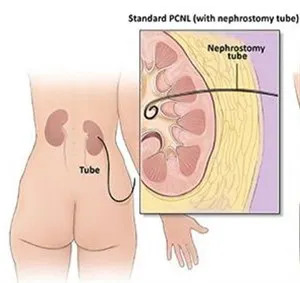Hospitals Available with this Percutaneous Nephrolithotomy (PCNL) Treatment




Department: Urology
Estimated Cost : $960 - $1800
Percutaneous Nephrolithotomy (PCNL) is a state-of-the-art, minimally invasive surgical procedure designed to remove large kidney stones (greater than 2 cm in diameter) or multiple small stones that cannot be treated effectively with non-invasive techniques like extracorporeal shock wave lithotripsy (ESWL) or medication.
This advanced procedure is recommended for patients who have:
While PCNL is generally safe and well-tolerated, as with any surgical procedure, there are potential risks:
These risks are minimized when performed by experienced urologists using modern equipment.
1. Is PCNL painful?
You will be under general anesthesia during the procedure, so you won’t feel pain. Post-surgical pain is generally mild and manageable with medication.
2. How long will I be in the hospital?
Typically, patients stay in the hospital for 1–2 days after the procedure.
3. Will the stone come back?
While PCNL effectively removes existing stones, new ones can form. Your doctor will provide guidance on diet, hydration, and lifestyle to help prevent recurrence.
4. Is PCNL safe for all patients?
PCNL is safe for most individuals, but suitability depends on factors like overall health, stone size and location, and previous treatments. A urologist will determine if PCNL is right for you.
5. What follow-up is required?
A follow-up appointment is usually scheduled within a few weeks for imaging tests to ensure complete stone clearance and assess kidney function.
@2025 Healtour Solutions Pvt Ltd. All Rights Reserved.